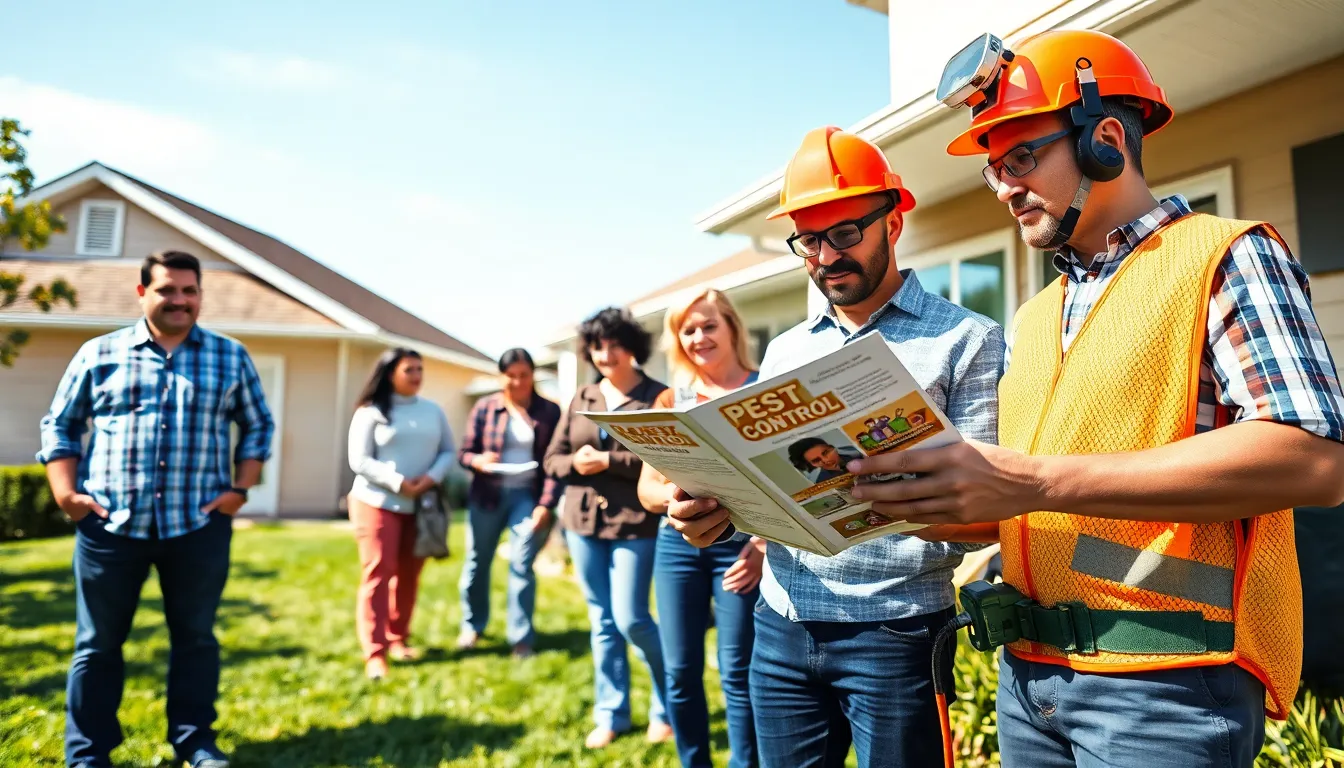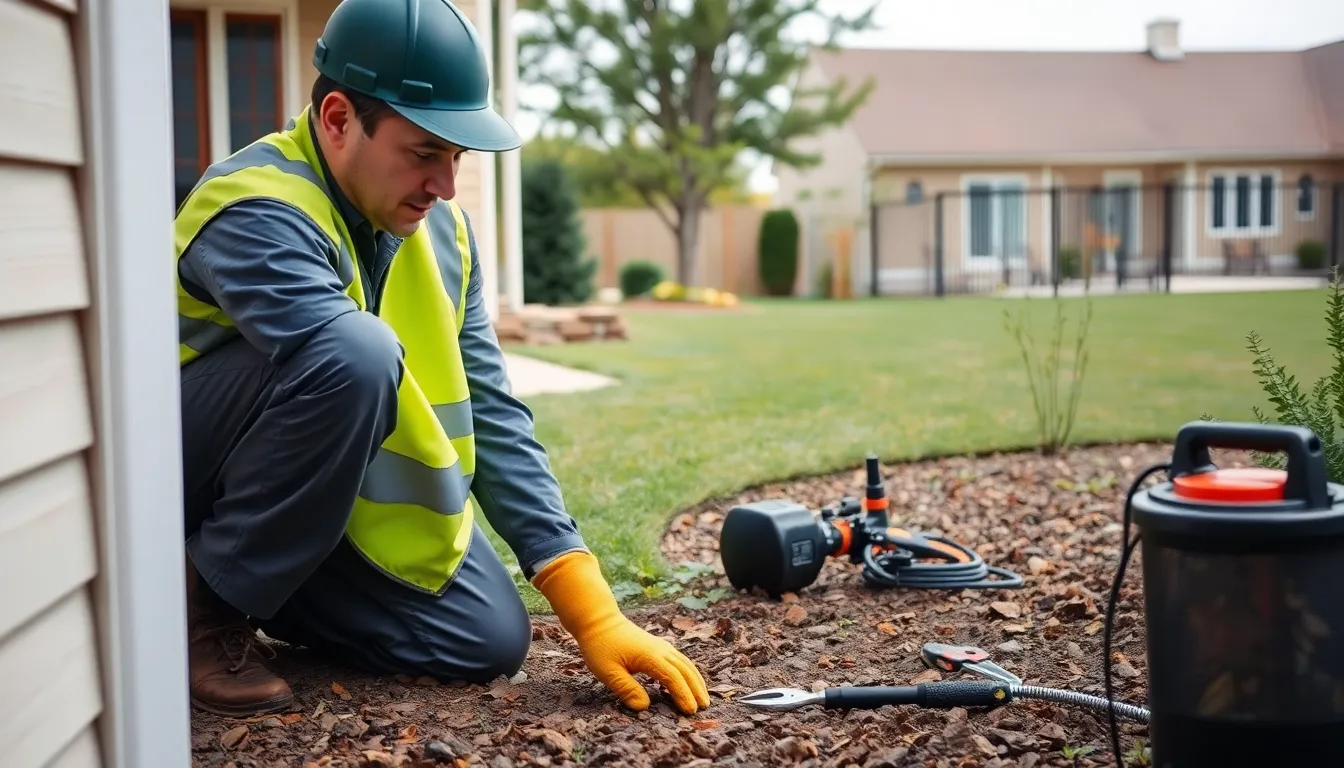Table of Contents
ToggleWhen it comes to pest control, it’s not just about squishing bugs and calling it a day. It’s a serious business that demands attention, strategy, and a touch of finesse. After all, nobody wants their home to double as a five-star hotel for roaches and rodents. Understanding pest control responsibilities is crucial for homeowners, landlords, and even the occasional hapless roommate who forgot to take out the trash.
Understanding Pest Control Responsibilities
Pest control responsibilities encompass various tasks essential for maintaining a pest-free environment. Homeowners play a significant role in preparing their properties for pest control measures. They must prevent infestations by regularly inspecting their homes for signs of pests and sealing entry points.
Landlords share responsibility in ensuring both common areas and individual units remain free from pests. They must provide timely pest control services and clearly communicate policies related to pest management with tenants. Educating renters about their obligations, such as reporting problems immediately, fosters a collaborative effort to prevent pest issues.
Roommates also hold a share of pest control responsibilities. They should work together to maintain cleanliness and properly dispose of food waste. Cooperation ensures that pests, like roaches and rodents, find fewer places to thrive.
Taking proactive steps is vital for all parties involved. Regular cleaning routines can significantly lower the risk of pest attraction. Maintaining outdoor areas, including yards and gardens, is equally important as pests can easily migrate indoors from these spaces.
Understanding local laws regarding pest control can guide individuals in meeting their obligations. Some jurisdictions require landlords to meet specific pest management standards, making compliance important for property owners.
Developing an open line of communication among all stakeholders enhances pest control effectiveness. Reporting any sightings or concerns promptly minimizes the chances of larger infestations developing. Respecting shared spaces and taking joint responsibility leads to a more pleasant living environment for everyone involved.
Legal Obligations

Legal obligations in pest control ensure that properties maintain health and safety standards. Homeowners, landlords, and roommates must follow established regulations.
Federal Regulations
Federal regulations govern pest management through methods like the Federal Insecticide, Fungicide, and Rodenticide Act (FIFRA). This law mandates that all pesticide products must receive registration from the Environmental Protection Agency (EPA) before being used. Using unregistered pesticides poses legal risks. Additionally, the EPA sets guidelines for safe application and disposal of these substances. Compliance with these requirements guarantees not only effective pest control but also environmental safety.
State and Local Laws
State and local laws further define pest control responsibilities. Many states, for instance, require specific licensing for pest control operators. Compliance with these licensing requirements ensures professional standards are upheld. Local ordinances may dictate specific pest management practices, including limits on pesticide use near water sources. Knowing these laws helps homeowners and landlords avoid legal penalties. Engaging local pest control agencies also provides crucial insights into specific pest control measures that align with regional regulations.
Property Owner Responsibilities
Property owners play a crucial role in pest control. They not only maintain the property but also help create a pest-free environment.
Maintenance and Prevention
Regular maintenance prevents pest problems. Property owners should inspect their premises, focusing on common entry points like cracks and gaps. Sealing these areas minimizes the risk of infestations. Cleaning outdoor spaces, including gutters and yards, deters pests from nesting. Keeping trash in secure containers and removing standing water limits attractions for pests. Scheduling seasonal pest control treatments offers another layer of protection. Each proactive step ensures a healthier living environment.
Reporting Infestations
Timely reporting of infestations is vital. Property owners must communicate any signs of pests to pest control professionals immediately. This quick action helps manage the situation before it escalates. Educating tenants or other occupants about recognizing pest-related issues fosters awareness. Providing clear instructions on how to report concerns aids in efficient pest management. Establishing a direct line of communication with pest control services streamlines the response process, ensuring effective resolutions. Each action taken contributes significantly to reducing pest problems.
Pest Control Professional Responsibilities
Pest control professionals play a vital role in managing infestations and ensuring a safe environment. Their responsibilities encompass various aspects of pest management.
Licensing and Training
Licensing requirements ensure that pest control professionals possess necessary qualifications. Each state mandates specific licenses and training for operators. Courses cover pest biology, treatment techniques, and safety protocols. Additionally, ongoing education keeps professionals informed about new regulations and methods. Certified operators contribute to effective pest management by adhering to best practices. Compliance with local laws solidifies their credibility and enhances consumer trust. Training programs also teach about environmentally friendly pest control solutions.
Treatment and Follow-up
Effectively treating infestations involves assessing the situation, selecting appropriate methods, and implementing solutions. Professionals first evaluate the severity and type of pest problem. Then, they apply targeted treatments, such as baits or insecticides approved by the Environmental Protection Agency. After initial treatments, follow-up visits are crucial for assessing treatment effectiveness. These follow-ups allow professionals to monitor pest activity and make necessary adjustments. Continuous communication with property owners fosters transparency and ensures satisfaction. Ultimately, a comprehensive approach leads to a pest-free environment.
Collaborative Efforts
Collaborative efforts among homeowners, landlords, and occupants enhance pest control effectiveness. Engaging with community resources can provide valuable assistance in managing pest issues.
Engaging with Community Resources
Utilizing local pest control organizations fosters greater awareness and responsiveness to infestations. Community workshops and resources offer guidance on preventive measures and pest identification. Neighbors can share experiences and tips, creating a supportive network. Collaboration with local health departments enhances understanding of prevalent pests and regional pest management laws. Engagement with community initiatives also promotes responsibility among residents, reinforcing the importance of maintaining pest-free environments.
Educating Tenants and Residents
Educating tenants and residents about pest control significantly reduces infestations. Regular informational sessions can teach proper waste disposal and cleanliness techniques. Providing written materials reinforces best practices and ensures consistent understanding. Encouraging residents to report pest sightings promptly enables quick action before issues escalate. Open discussions about pest control responsibilities create an informed community, leading to more effective management strategies.
Understanding pest control responsibilities is crucial for maintaining a healthy living environment. Homeowners landlords and roommates all play vital roles in preventing infestations and managing pest issues effectively. By taking proactive measures and fostering open communication each party can contribute to a pest-free space.
Legal compliance and collaboration with pest control professionals further enhance these efforts. Engaging with community resources and participating in educational initiatives can empower individuals to recognize and address pest problems promptly. A united approach not only minimizes infestations but also promotes a more pleasant and safe atmosphere for everyone involved.








